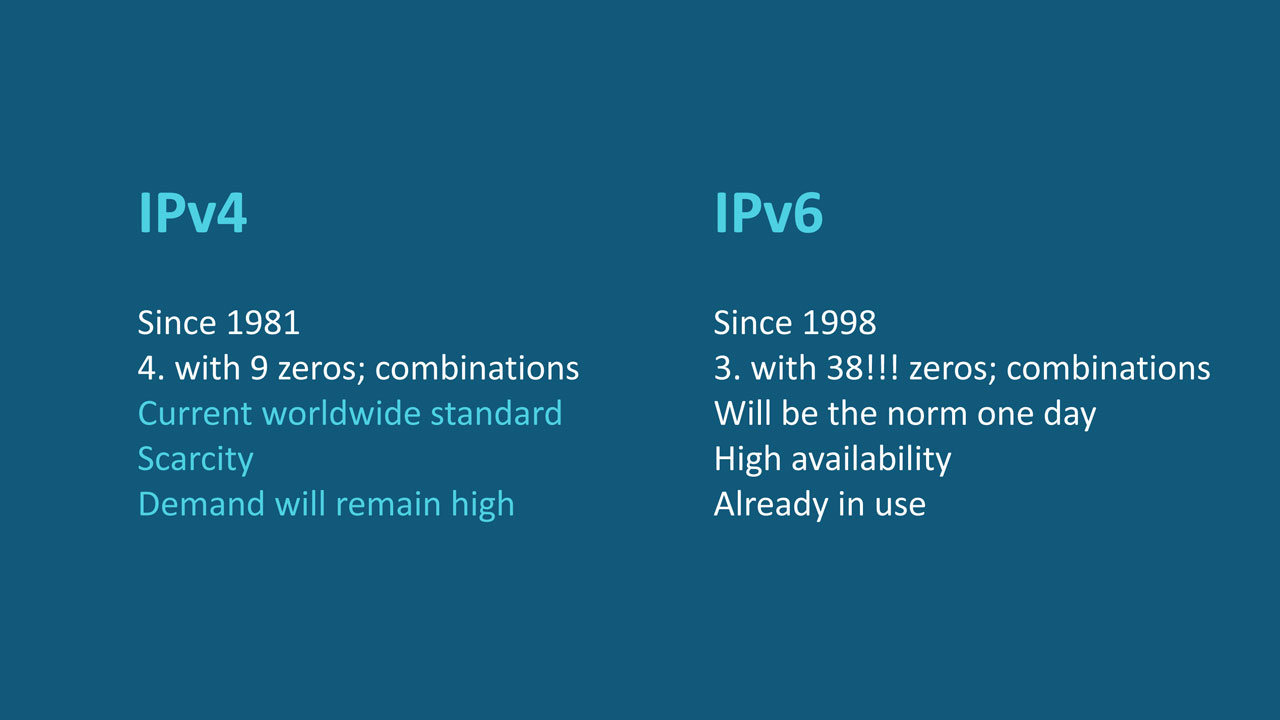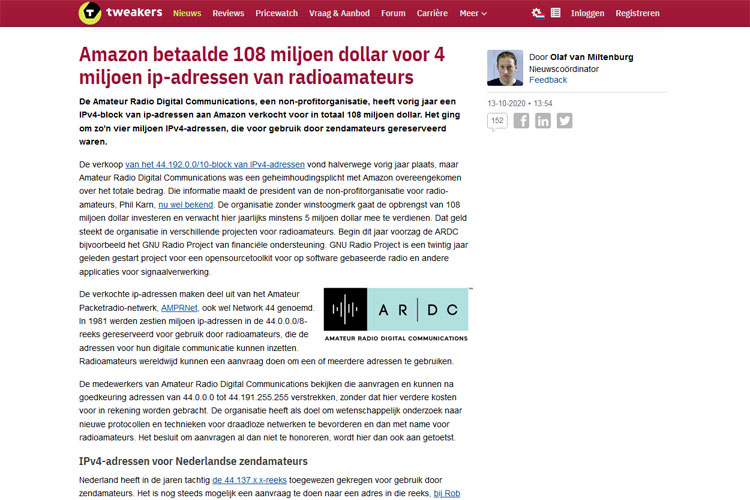At home, you have an internal network in which devices connect to each other and to your home router. You can connect to your router from your laptop, computer, game console or any other device that uses the internet. The router/modem provides the connection to the outside world. This connection is made via your public IP address. Without this unique address, you won’t be able to access the internet.
Each internet address has its own, unique set of numbers. If you try to imagine how much internet is currently used, it’s not difficult to imagine that we need billions of internet addresses. In fact, back in the days, internet scientist thought that 4,3 billion (4.294.967.296) numerical combinations would be enough. This was the “birth” of version 4!… IPv4.
However, already in 1998 it became clear that even those 4.3 billion addresses wouldn’t be enough in the long run. Anno 2020, the maximum number of numerical combinations has been reached!
In 1998, internet scientist started with the development of a new version, IPv6, which has 340.000.000.000.000.000.000.000. 000.000.000.000.000 numerical combinations. However, the developments are still going very slowly and it will take a long time until IPv6 fully takes over the internet.
Version 4 is extremely stable and version 6 will not be a success until everyone around the world has switched to IPv6. Given the slowness of the process, we expect that IPv6 will not become the worldwide standard in the next 5 years.

Internet service providers don’t have a lot of reasons to switch to IPv6 because their networks are stable and unused IPv4 addresses can be reused. Additionally, there are no real benefits until the very last network in the world has switched to IP version 6.
In December, SIDN, the registrar of .nl domains, published an article about developments in the IPv4 market. Their conclusion was that IPv4 will remain the standard for the next years, but that a decline in growth may be expected in 10 years or so.
This confirms the expectation that IPv4 will remain the standard for at least the next 5 years, which is the period of investment.
In October 2020, Amazon paid 108 million dollars for 4 million IP addresses from Amateur Radio Digital Communications. source: tweakers.net
Freedom Internet is investing in static IPv4 addresses and dual-stack. Using only IPv6 proved to not be a viable option. As explained by the company’s CEO: there are simply too many sites that cannot be reached via IPv6. source: sidn

Menu
Our mission
Contact
Imondio B.V. (i.o)
Randstad 22 09 (Unit 1.2)
1316BN Almere,
Netherlands
+ 31 85 401 6330
contact@imondio.com
